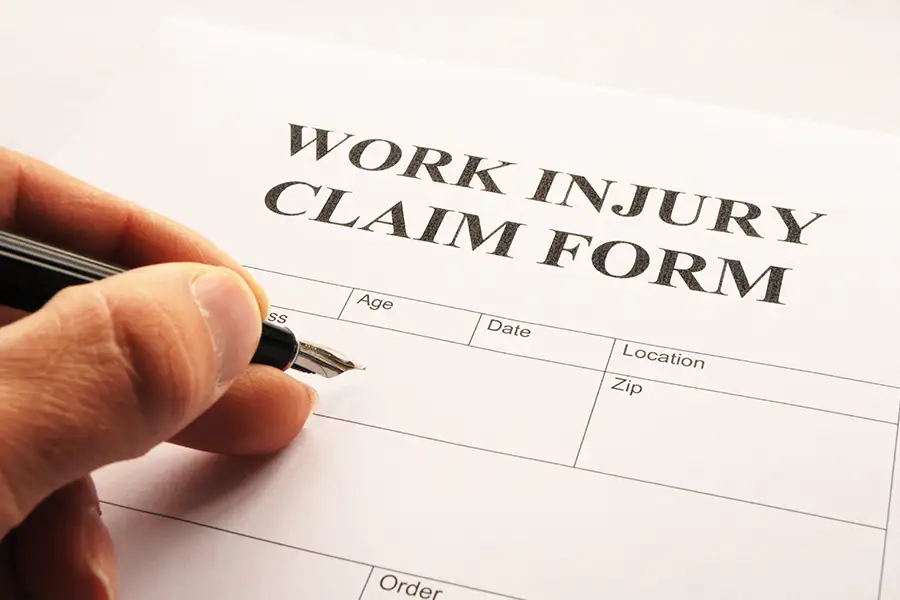
Colorado Workers’ Compensation for Grocery Store Workers
Understand your right to compensation after an injury or illness while working at a grocery store
Along with health care workers and commercial truck drivers, grocery store employees also rose to the occasion during the COVID-19 pandemic by meeting a public need. While most businesses were closed or operating remotely during the height of the pandemic, grocery stores remained open to the public as communities rushed to gather food and essential supplies.
Compared to many other occupations, grocery store workers are at a high risk of contracting COVID-19 and suffering a range of other injuries. Grocery store workers are also more likely to experience negative mental health effects because of their jobs.
Fortunately, Colorado grocery store workers may be eligible to receive workers’ compensation for job-related injuries and illnesses that affect their physical or mental health.
Common grocery store jobs
Employees work around the clock to keep grocery stores stocked and running smoothly. Some roles are more visible, while others occur behind the scenes. Examples of common grocery store jobs include:
- Overnight stockers
- Butchers
- Produce associates
- Cashiers
- Deli staff
- Bakery staff
- Security personnel
- Customer service workers
- General managers
- Assistant managers
- Department managers
Common hazards in grocery stores
Grocery stores can be surprisingly harsh work environments. Workers are exposed to various risks that may contribute to workplace accidents:
- Toxic chemicals. Stores have to be cleaned regularly. Therefore, workers may be exposed to potentially toxic cleaning chemicals.
- Slip-and-fall accidents. Wet floors, stray items that fall off shelves, and spills create the possibility of a worker slipping or tripping and falling.
- Heavy machinery. Employees often use dangerous heavy equipment like forklifts to move large product shipments.
- Sharp equipment and box cutters. Food prep workers, butchers and stock workers are at risk of cutting themselves on sharp objects or equipment.
- Vehicle accidents. Delivery drivers and workers whose job duties require performing tasks in the parking lot are at risk of vehicle accidents.
- Violence. A worker can be hurt on the job if the store is robbed or if an angry customer becomes confrontational. According to the U.S. Bureau of Labor Statistics (BLS), homicide has historically been the cause of death in nearly all fatal workplace accident cases that occur in grocery stores.
Common injuries and illnesses in grocery store settings
Common occupational injuries and illnesses in Colorado grocery stores include:
- Stab wounds, cuts and lacerations
- Broken bones
- Burn injuries
- Repetitive motion injuries from operating cash registers or performing other repetitive tasks
- Overexertion injuries like muscle strain from heavy lifting supplies
- Head, spinal cord and traumatic brain injuries from falling on slippery or crowded floors
- Leg, back and foot injuries (especially among cashiers who stand on hard flooring for extended periods)
- Occupational diseases from contact with contagious workers or members of the public
- Post-traumatic stress disorder (PTSD) and other stress-related injuries
Workers’ compensation in Colorado
Colorado law requires most employers with at least 1 employee to provide workers’ compensation insurance to their part-time and full-time employees.
As a no-fault system, injured workers who apply for workers’ comp are not required to prove that someone was at fault for the accident that caused their injury. They only need to prove that their injury or illness arose out of and in the course of their employment.
Who’s covered under workers’ comp in Colorado?
Colorado law requires employers to provide workers’ comp coverage to all workers who are classified as employees. This means that most full- and part-time grocery store employees are generally eligible to receive workers’ comp benefits for work-related injuries and illnesses.
However, the following categories of workers are generally not eligible for workers’ comp benefits in Colorado:
- Independent contractors
- Certain corporate officers and LLC members
- Maintenance workers who perform services for less than $2,000 annually
Benefits available to injured grocery store employees
Grocery store employees who are hurt at work may receive several types of benefits through workers’ comp. Benefit categories include the following:
- Medical benefits that cover expenses like bills for doctor visits, hospital stays, surgeries, rehabilitation, medications, medical-related transportation, and medical supplies and devices
- Income supplementation to provide some reimbursement of the wages you have lost
- Death benefits paid to your surviving dependents if a work accident causes your death
Why was my workers’ comp denied?
On-the-job injuries are common, but there are times when a completely valid claim is denied in Colorado because mistakes were made when the paperwork was filed.
Steps to take after a workplace accident in Colorado
Grocery store workers who are injured on the job can begin the workers’ comp claims process on their own. Nevertheless, we recommend contacting a Colorado workers’ compensation attorney to provide guidance and professional representation throughout the process.
Grocery workers who are injured on the job should take the following steps after an injury:
- Immediately seek medical attention. This will ensure your injury doesn’t get worse and provide documentation that your injury resulted from a work accident.
- Notify a supervisor. You should notify your supervisor or manager in writing as quickly as possible after an accident—ideally within 10 days. If your injury is not an emergency, you should also request a referral to an employer-approved doctor to receive treatment.
- Wait for your claim to be approved. Your employer must notify their insurance company of your injury or illness within 10 days. A decision about your claim is typically made within 20 days.
- Contact an attorney. If your claim is denied or you need assistance filing your claim, contact a workers’ compensation attorney to ensure your right to compensation is protected.
Spot these signs of a bad workers’ comp attorney
Learn top warning signs and indications that an attorney is untrustworthy or inexperienced when it comes to practicing workers’ compensation law in Colorado.
Contact a Colorado workers’ compensation attorney
In some cases, an employer may be reluctant to complete the required paperwork, or the insurance company may challenge a worker’s claim. Situations like these are red flags that indicate you’re going to have difficulty getting the compensation you’re entitled to without the help of a qualified workers’ comp attorney who can negotiate on your behalf and advocate for your rights.
If you’re a grocery store worker who’s been injured on the job, contact the experienced workers’ compensation attorneys at The Babcock Law Firm. Our attorneys are committed to helping injured Coloradans get maximum compensation after a work accident. Let us handle the negotiations with your employer and their insurance company so you can focus on healing.
Contact us today for a free consultation of your case.



